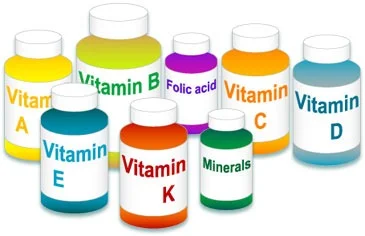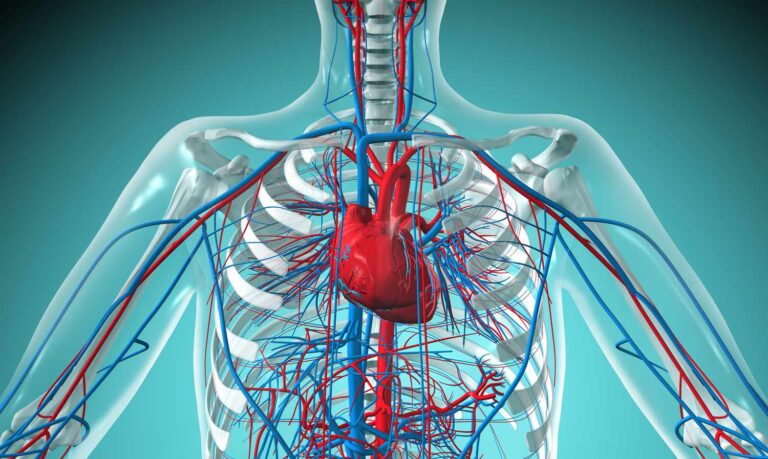
In today’s fast-paced world, the quest for optimal health has led many to consider vitamins and supplements as essential components of their daily routines. With the abundance of information available, it can be challenging to discern what is necessary and what might be superfluous. This blog will delve into the roles of vitamins and supplements in our diets, exploring their potential benefits, who might need them, and important considerations to keep in mind. By the end, you’ll have a clearer understanding of whether incorporating these products into your routine is necessary for your health journey.
What Are Vitamins? Vitamins are organic compounds that are essential for various biochemical processes in the body. They play critical roles in metabolism, immunity, and overall health. Vitamins are categorized into two main groups:
Water-Soluble Vitamins:
B Vitamins: Includes B1 (thiamine), B2 (riboflavin), B3 (niacin), B5 (pantothenic acid), B6 (pyridoxine), B7 (biotin), B9 (folate), and B12 (cobalamin). They help with energy production, red blood cell formation, and brain health.
Vitamin C: Essential for the immune system, skin health, and antioxidant protection.
Fat-Soluble Vitamins:
Vitamin A: Important for vision, immune function, and skin health.
Vitamin D: Crucial for calcium absorption and bone health; also linked to mood regulation.
Vitamin E: An antioxidant that protects cells from damage.
Vitamin K: Essential for blood clotting and bone health.
Natural Sources of Vitamins:
- Vitamin A: Carrots, sweet potatoes, spinach, and liver.
- Vitamin C: Citrus fruits, strawberries, bell peppers, and broccoli.
- Vitamin D: Fatty fish, fortified dairy products, and sunlight exposure.
- B Vitamins: Whole grains, eggs, meat, legumes, and leafy greens.
- Vitamin E: Nuts, seeds, and green leafy vegetables.
- Vitamin K: Kale, spinach, broccoli, and fermented foods

What Are Supplements? Supplements are products designed to enhance the diet and provide nutrients that may be lacking. They can include vitamins, minerals, herbs, amino acids, enzymes, and other substances. Supplements come in various forms, including tablets, capsules, powders, and liquids.
Who Might Need Vitamins and Supplements?
- Dietary Restrictions: Individuals following strict vegetarian or vegan diets may lack certain nutrients typically found in animal products, such as vitamin B12, iron, and omega-3 fatty acids. For these individuals, supplements can help bridge the nutritional gap.
- Health Conditions: Certain health conditions can impair nutrient absorption or increase nutrient requirements. For example, individuals with gastrointestinal disorders, such as Crohn’s disease or celiac disease, may benefit from supplementation to ensure adequate nutrient intake.
- Age-Related Needs: As we age, our bodies may require more nutrients to support various functions. Older adults often need higher levels of vitamin D and calcium for bone health, as well as B12 for cognitive function.
- Pregnancy and Lactation: Pregnant and breastfeeding women have increased nutrient needs to support both their health and that of their child. Prenatal vitamins, which typically contain folic acid, iron, and DHA, are often recommended.
- Busy Lifestyles: For those with hectic schedules, maintaining a balanced diet can be challenging. Supplements can serve as a convenient option to ensure that essential nutrients are not overlooked.
The Benefits of Vitamins and Supplements
- Nutrient Support Vitamins and supplements can help individuals achieve the recommended daily intake of essential nutrients, particularly when dietary sources are insufficient. They help filling nutritional gap if any.
- Disease Prevention Some studies suggest that certain vitamins and minerals may play a role in preventing chronic diseases. For instance, Vitamin D and K are linked to bone health and may reduce the risk of osteoporosis, Vitamins A, C, and E are known for their benefits to skin health, promoting healing and protecting against damage from the sun and pollution, Omega-3 fatty acids and certain B vitamins may help reduce symptoms of anxiety and depression, Omega-3 fatty acids also support heart health by improving cholesterol levels and reducing inflammation.
- Improved Energy Levels Certain B vitamins are essential for energy production in the body. Individuals who feel fatigued or low on energy may find that taking B-complex supplements helps boost their vitality.
- Enhanced Immune Function Vitamins such as C and D, along with zinc, are known to support the immune system. Supplementing with these nutrients may help reduce the severity or duration of colds and other infections.
Potential Drawbacks of Vitamins and Supplements
- Over-Supplementation Taking high doses of vitamins and minerals can lead to toxicity and adverse health effects. Fat-soluble vitamins (A, D, E, and K) are particularly concerning, as they can accumulate in the body, for example, too much vitamin A can cause liver damage and vision problems.
- False Sense of Security Relying solely on supplements may lead individuals to neglect the importance of a balanced diet rich in whole foods. Supplements should not replace healthy eating habits.
- Interactions with Medications Certain supplements can interact with prescription medications, either enhancing or diminishing their effects. It’s essential to consult a healthcare provider before starting any new supplements, especially if you are on medication.
- Quality and Regulation Issues The supplement industry is not as tightly regulated as pharmaceuticals, leading to variability in product quality. Some supplements may not contain the advertised ingredients or may be contaminated with harmful substances. Choosing reputable brands and third-party tested products is crucial.
- Digestive Issues Some individuals may experience gastrointestinal side effects, such as nausea, diarrhea, or constipation, from certain supplements, particularly when taken in high doses.
- Cost Regularly purchasing vitamins and supplements can become expensive, and this cost may not be justifiable if they aren’t needed or if dietary changes could achieve the same results.
Do You Really Need Vitamins and Supplements?
The answer to this question largely depends on individual circumstances. Here are a few guidelines to help you determine if you might benefit from supplementation:
- Assess Your Diet A well-balanced diet that includes a variety of fruits, vegetables, whole grains, lean proteins, and healthy fats is the best way to obtain essential nutrients. If you feel your diet lacks diversity or you have specific dietary restrictions, supplementation may be beneficial.
- Consult a Healthcare Professional Before starting any new vitamin or supplement regimen, it’s wise to consult with a healthcare provider or a registered dietitian. They can evaluate your individual needs based on your health history, lifestyle, and dietary habits.
- Consider Blood Tests For those concerned about specific nutrient deficiencies, blood tests can provide valuable insights. These tests can identify deficiencies in vitamins such as B12, D, and iron, allowing for targeted supplementation if necessary.
- Focus on Whole Foods First If you decide to take supplements, remember that they should complement, not replace, a healthy diet. Focus on whole foods that provide a wide array of nutrients and fiber.

Vitamins and supplements can play a beneficial role in maintaining health, particularly for individuals with specific needs or dietary restrictions. However, they are not a substitute for a balanced diet. Before making any changes to your supplement routine, it’s crucial to assess your individual needs and consult with a healthcare professional. By making informed choices, you can effectively support your health and well-being, ensuring you’re getting the nutrients you need to thrive.











One thought on “Unveiling the Essential Roles of Vitamins and Supplements: Do you really need them?”